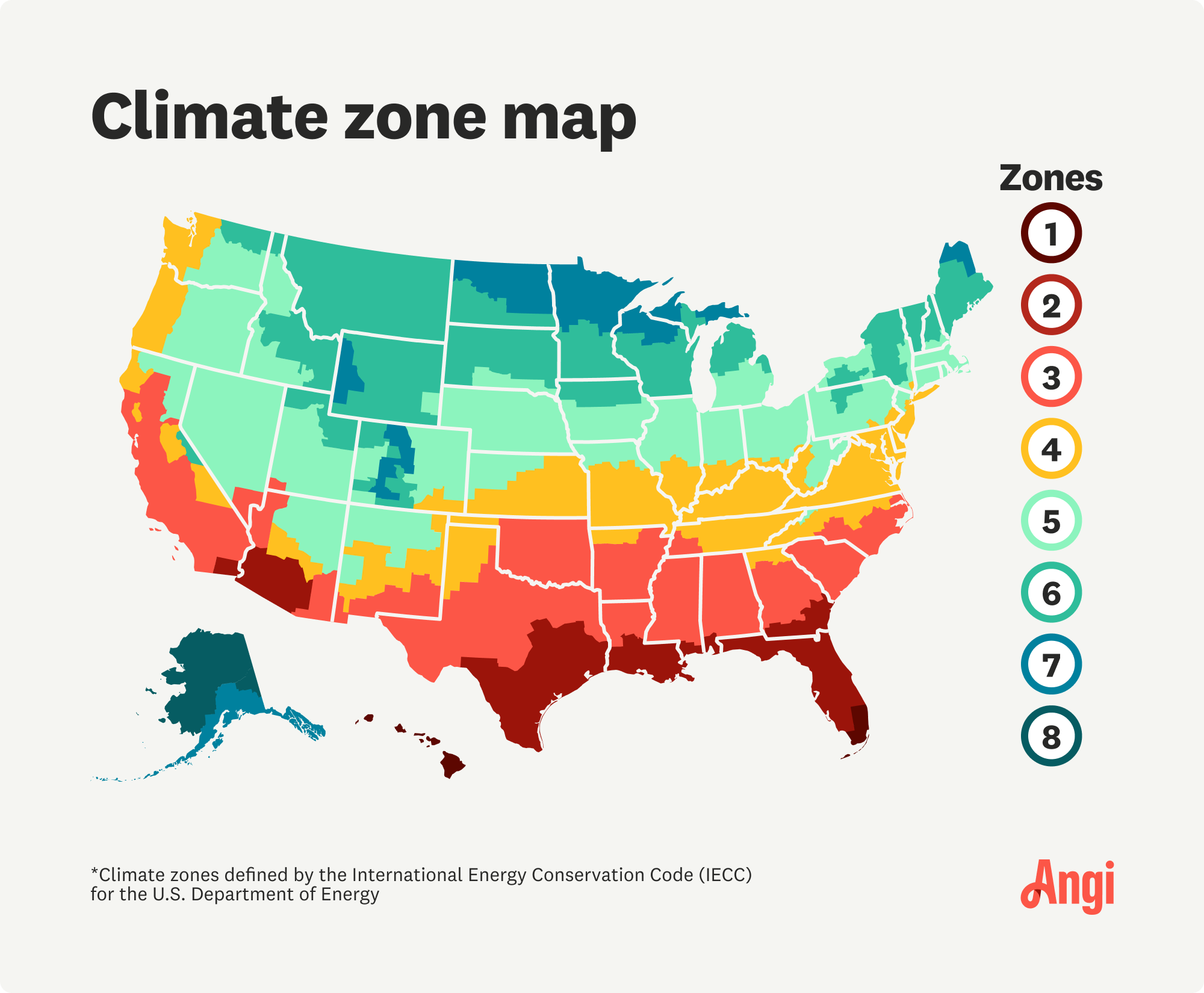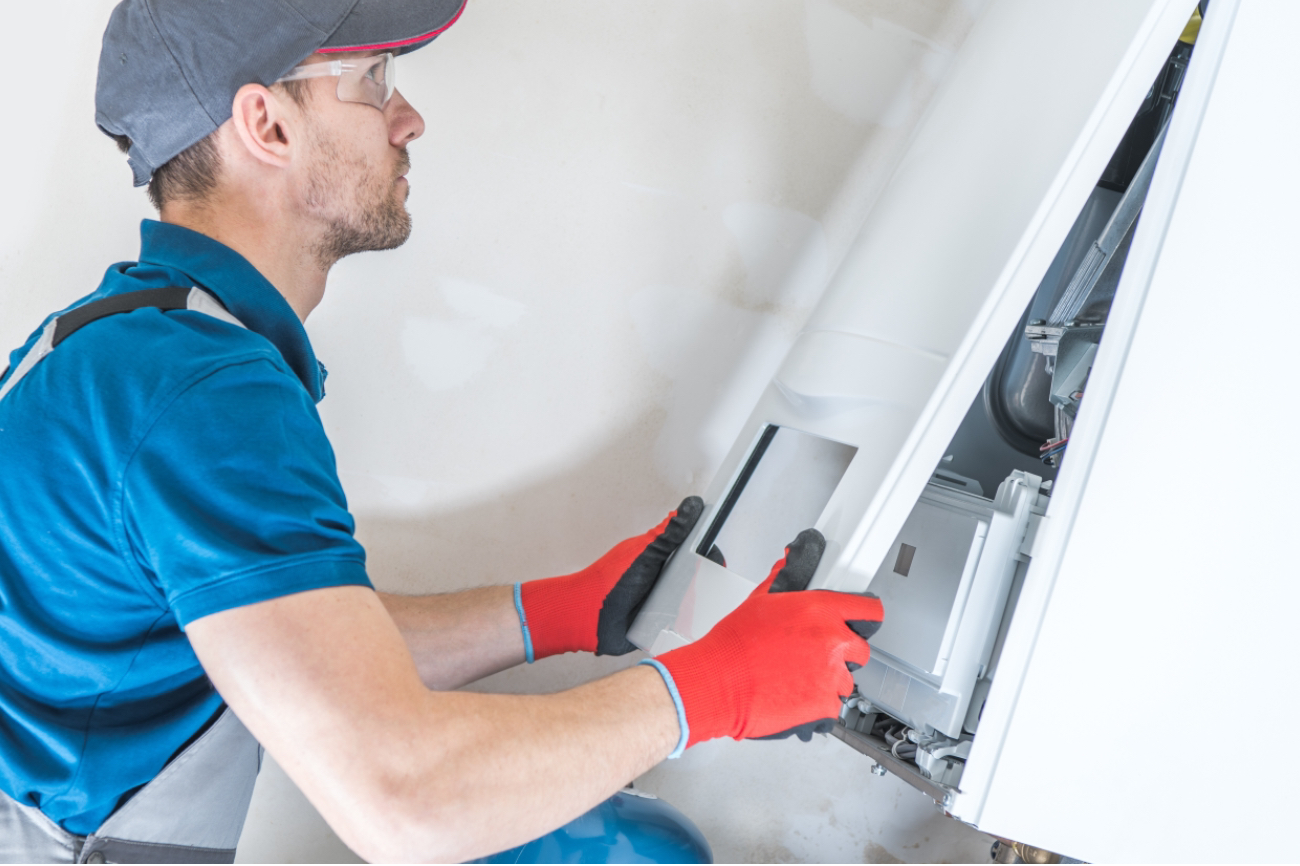
Find out the average humidifier repair cost, what impacts pricing, and how to save. Get expert tips to budget for your humidifier repair.
Heating and air conditioning service costs depend on your project and location. Check with a local pro for your specific job.
Your home’s square footage is one of the main factors that influences your boiler replacement cost in Chicago.
More spacious homes require bigger boilers, which cost more to install.
Your boiler’s system type will also affect the price of your project.
High-efficiency boilers, for example, can cost twice as much as standard-efficiency units.
You should consider the cost of permits, professional installation, and sales tax, as well.
The average boiler replacement cost in Chicago is $5,071, but homeowners in the Windy City often pay between $2,472 and $8,294 for a new boiler. Your final cost will depend on a handful of factors, including the boiler’s size, fuel type, and system type. Let’s take a closer look at how these things will influence your boiler replacement budget in Chicago, IL.
From heating capacity to fuel type, there are a number of factors to consider when calculating your boiler replacement costs in Chicago, IL.
You can estimate the cost of your boiler by your home’s square footage and boiler capacity using the table below. However, call an HVAC pro in Chicago, IL, for the most accurate estimate.
| Home Size (in Square Feet) | Boiler Size in British Thermal Units (BTUs) | Average Unit Cost |
|---|---|---|
| 1,000 | 30,000–45,000 | $2,000–$3,200 |
| 1,500 | 45,000–68,000 | $2,500–$3,800 |
| 2,000 | 60,000–90,000 | $3,100–$4,800 |
| 2,500 | 75,000–113,000 | $3,600–$5,600 |
| 3,000 | 90,000–135,000 | $4,100–$7,000 |
The most common fuels used for boilers in Chicago, IL, are natural gas and propane. The fuel type you choose will have a major impact on both your ongoing costs and how much you pay for a new boiler.
| Fuel Type | Average Unit Cost |
|---|---|
| Oil | $1,800–$6,500 |
| Gas | $1,300–$6,500 |
| Propane | $2,000–$7,000 |
| Electric | $1,100–$5,500 |
| Wood | $5,000–$13,000 |
Oil boiler: Oil burns hotter than gas, so oil boilers provide more heat and are better in colder climates. However, oil boilers require more maintenance than gas options, so keep things like long-term maintenance costs in mind before buying.
Gas and propane boiler: Propane and natural gas are common options for heating homes. In addition to the unit price, installation costs $1,000 to $3,000 and requires new exhaust lines, drains, and fuel lines.
Electric: Electric boilers are highly efficient and don't require some of the components that gas and oil boilers need, like exhaust vents. They take a long time to heat up but are an attractive option for tiny homes in warm climates.
Wood: Large, outdoor, wood-fueled boilers are good options for rural areas that have easy access to wood.
Boilers are broken out by fuel type, but they can also vary in other ways—like their system types.
| Boiler System Type | Average Unit Cost |
|---|---|
| Standard or conventional | $1,200–$4,500 |
| Combination | $1,600–$4,500 |
| System | $2,000–$4,000 |
| High-efficiency | $2,500–$8,000 |
Standard or conventional boilers: These boilers work by quickly heating water in pipes and sending it to your taps. Standard units are one of the most popular choices for homeowners in large homes and those with floor heating systems.
Combination boilers: Combination boilers are popular because they’ll give you access to hot water quickly. However, the supply tends to be limited due to the lack of a storage tank.
System boilers: These work by keeping high-pressure hot water in a sealed cylinder, where it can be sent to multiple taps within your home simultaneously.
High-efficiency boilers: High-efficiency boilers are up to 98% efficient, which accounts for thousands of dollars in savings over the boiler's life. Standard boilers are around 80% efficient, making them ideal for cold climates.

The capacity of your boiler (in BTUs) depends on your region and climate. Warmer climates make it much easier to heat water, even for larger houses, so fewer BTUs are required. You can estimate your necessary BTUs by finding out which climate zone you live in.
In addition to the unit cost of the boiler, there are a few more things to add to your boiler replacement budget, including labor and permits.
Installing a boiler can be dangerous work, so it’s important to hire a qualified HVAC professional for this job. To protect your investment, make sure your boiler installation company is insured and bonded and has a general contractor license from the city of Chicago.
Additionally, consider hiring a NATE-certified professional to replace your boiler. This is an optional certification issued by North American Technician Excellence (NATE), a nonprofit credentialing organization for HVAC and refrigeration pros. If your installer has a NATE certification, it means they’ve passed a series of expert-created exams, participate in continuing education sessions, and have at least two years of HVAC experience.
If you’re replacing your boiler with one of the same type (known as “in-kind replacement”), the City of Chicago doesn’t require a permit. However, if you’re upgrading to a different size or type of boiler, you may need one. Your contractor should list the costs of any necessary permits in their quote and obtain the correct ones on your behalf.
At 10.25%, Chicago’s sales tax rate is one of the highest in the country. Keep this in mind if you’re planning to buy your new boiler in the city because it can increase your costs by several hundred dollars. For instance, on a $3,800 boiler, you’d owe $390 in sales tax.
If you buy a qualifying natural gas boiler, you might be eligible for a rebate from Peoples Gas. The amount you’ll get back depends on the specifics of the boiler, but as an example, the utility offers $150 back on steam boilers with Annual Fuel Utilization Efficiency (AFUE) ratings of 82.5% or higher.
If you put your home on the market, having a new boiler will boost its appeal in the eyes of most buyers. For one, they’ll appreciate that your property has a solid heating system to keep them warm through the cold and snowy Chicago winters. But on top of that, they’ll also appreciate that they shouldn’t have to install a new heating system for years to come.
You can see an even bigger jump in your home’s resale value—between 5% and 7%—if you pair your new boiler with an AC unit.
Home is the most important place on earth, which is why Angi has helped more than 150 million homeowners transform their houses into homes they adore. To help homeowners with their next project, Angi provides readers with the most accurate cost data and upholds strict editorial standards. We survey real Angi customers about their project costs to develop the pricing data you see, so you can make the best decisions for you and your home. We pair this data with research from reputable sources, including the U.S. Bureau of Labor Statistics, academic journals, market studies, and interviews with industry experts—all to ensure our prices reflect real-world projects.
Want to help us improve our cost data? Send us a recent project quote to [email protected]. Quotes and personal information will not be shared publicly.
From average costs to expert advice, get all the answers you need to get your job done.

Find out the average humidifier repair cost, what impacts pricing, and how to save. Get expert tips to budget for your humidifier repair.

When your HVAC system is acting up, it could be the blower motor to blame. See how much blower motor replacement costs and what impacts the price here.

Faulty AC drip pans can lead to pesky leaks and improper home cooling. Find out how much AC drip pan replacement costs for your cooling system.

Discover heat exchanger replacement costs to learn about price factors, labor, and ways to save before hiring a pro or starting your project.

Do you have a clogged AC drain line? We dig into the reasons behind those pesky blockages and how to clear them for optimal AC performance.
How to clean your air conditioner depends on the unit type. Sometimes, a good hose-down is all you need if you have centralized AC. This guide can help with the cleaning process.